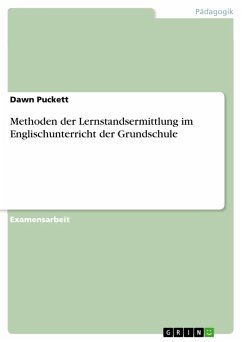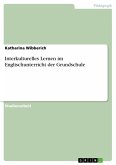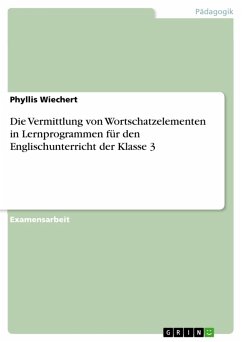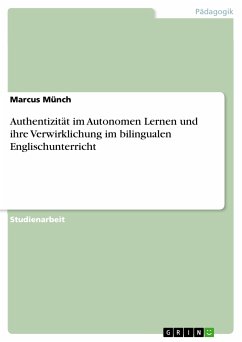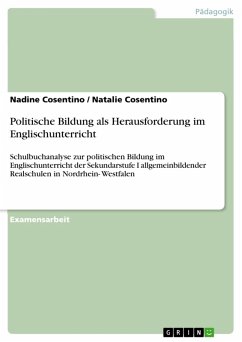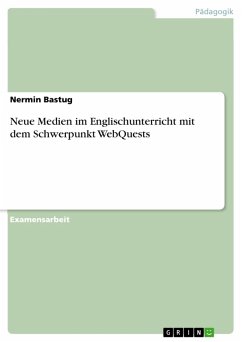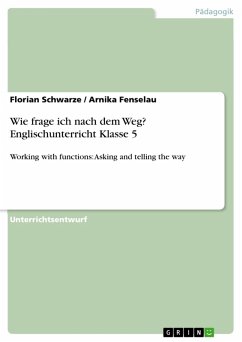Examensarbeit aus dem Jahr 2003 im Fachbereich Didaktik für das Fach Englisch - Pädagogik, Sprachwissenschaft, Note: 1, Justus-Liebig-Universität Gießen, Sprache: Deutsch, Abstract: This final thesis is on methods of English linguistic proficiency measurement in primary schools. English as a foreign language is becoming increasingly important. Accordingly, German primary schools are expected to introduce English as a major subject, to take advantage of the outstanding ability of children to learn a language quickly. However, there is still uncertainty regarding the appropriate grade to start teaching English, the didactic to be applied, the adequate curriculum etc. Furthermore, there is a growing public awareness of the quality of education in Germany. Therefore, there is need to develop and implement procedures that assure high standards of teaching. A standardized instrument to measure the linguistic proficiency of groups or individuals would be a valuable help to optimize teaching methods for English in primary school. It would also support the definition of a mandatory curriculum and allow to measure the improvement of quality of education. Additionally, it would be an useful diagnostic instrument for teachers who want to improve the effectiveness of their classes. The first step to construct such an instrument is the definition of what English proficiency actually is. A framework is developed that encompasses two dimensions with four components each. The first dimension is the content dimension, including the components vocabulary, grammar, auditory, and vocal skills. These components make people speak and understand English well, however they cannot be observed directly. The second dimension is the process dimension containing the components listening comprehension, speaking, reading and writing. These components are the actual expressions of linguistic proficiency and they are sourced by the components of the content dimension. It is argued that such a model allows not only a differentiated measurement of English proficiency but is also useful to help English students in a purposeful way. To develop a measurement tool that meets scientific standards, key quality criteria (mainly validity, reliability and objectiveness) have to be met. Different issues, that need to be considered to achieve these, are discussed. [...]
Dieser Download kann aus rechtlichen Gründen nur mit Rechnungsadresse in A, B, BG, CY, CZ, D, DK, EW, E, FIN, F, GR, HR, H, IRL, I, LT, L, LR, M, NL, PL, P, R, S, SLO, SK ausgeliefert werden.

